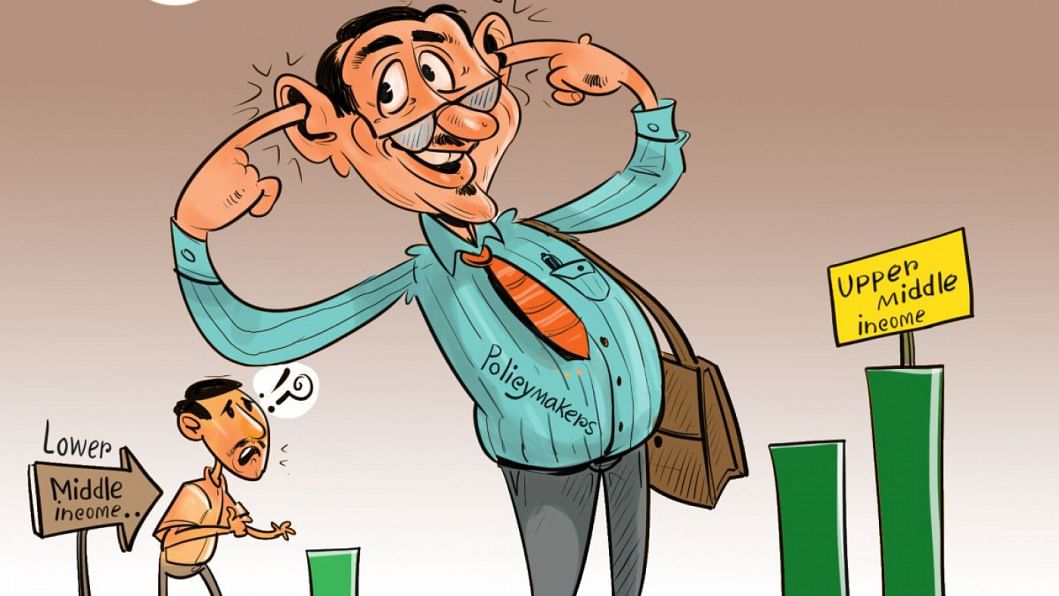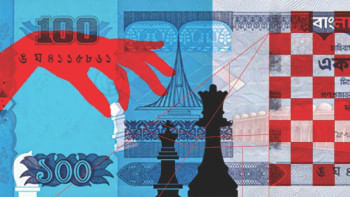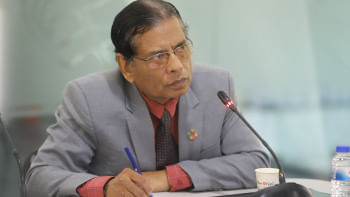Column by Mahfuz Anam: The middle income ‘intellectual’ trap

We have all heard about the middle income trap that many countries fall into while transitioning from one level of the economy to the next. Today, we want to talk about the middle income intellectual trap that, in our view, serves to create, among many other factors, the middle income trap and nurtures it for a long time. The intellectual trap refers to a country's policymakers' inability to ensure crucial intellectual freedom that accepts criticisms and divergent views, keeps an open mind for policy reforms, encourages innovations, and insists on transparency and accountability, which are the key factors in ensuring good governance.
The middle income trap – and there are different types for different stages of economic development – is a theoretical construct by economists to explain why countries going through various stages of their advancement get stuck and fail to move forward. For example, the Philippines, which is at our stage of development, is stuck in the lower middle income country (LMIC) trap for the last 34 years. It took Paraguay 28 years to make the transition from the LMIC to the upper middle income country (UMIC) status, which Bangladesh wants to achieve in 16 years (from 2015 to 2031), of which only eight years are left.
The lower middle income trap occurs when a lower income country (LIC), in the process of becoming an LMIC, is forced to pay relatively high wages with comparatively low productivity, because of a rising cost of living. Thus, an LMIC loses its competitive edge in the labour-intensive markets because it cannot compete in the higher value-added markets.
The question we want to ask today is why countries get stuck in transitioning from one category to the next. There are numerous economic reasons. But we believe there is also the "mindset" factor that makes the "trap" more lethal and impedes or delays a country's capacity to come out of it.
The mindset factor is a phenomenon in which policymakers become so enamoured with their success that they become defensive. They close their minds off to differing points-of-view that identify weaknesses in their "success" and shut out suggestions for policy reforms that are needed to move forward. They refuse to learn from other countries as to why they fell into the lower middle income trap, thus missing the crucial opportunity of avoiding the well-known pitfalls that could have easily been avoided had they just kept their minds open.
Bangladesh is a good case study of how we moved from a relatively weak base to a stronger economy, and how that has entrapped us into the middle income intellectual trap.
The high human cost – genocide – at our nation's birth and the overall economic devastations caused by the Pakistan Army left us heavily dependent. We needed aid to survive. Our resources were limited, and problems enormous. The world thought it would have to hold our hand constantly to help us survive. It was an "aid and conditionality" tablet that we needed to swallow annually to stay afloat.
The stigma of being termed a "basket case" and the reality of dependency led us to develop a collective sense of "inferiority." We were not as good as others – less educated, less healthy, less productive – and whatnot. The list was long and demoralising.
With constant insistence that we hire external consultants even for things we knew better, the "dependence syndrome" got deeply entrenched in our psyche and further deepened our inferiority complex.
Then, we surprised the world. Due to enormous hard work by the people, some crucial innovations of the private sector, and some far-sighted policies of the governments of the day, we started getting "A", rather than the usual "F", in the global categorisation of our performance. From standing with a crutch, we began to stand on our own and even climbed upwards to transition from an LIC to an LMIC in 2015.
With international recognition galore, we found the seductiveness of praise – which took more than 30 years to come – irresistible. We refused to accept the nuanced vulnerability of success and shut our ears to the voices of reforms.
Just as the dependency syndrome gave us an "inferiority complex," the sudden rise to becoming a global "model of development" brought its own psychological repercussions and gave us a "superiority complex." From donor consultants implying "we know nothing" to telling ourselves "we know everything," it was a euphoric journey – albeit a dangerous one. We took all appreciation as something we deserved, and rejected all warning and alert notices as the inability of our "doubters" to accept our success. We soon developed an attitude of arrogance and "know-all" that hid from our perception some serious weaknesses in our achievements. Amid the cacophony of self-congratulations, we forgot that we needed reforms, innovations, and good governance.
The IMF's latest recommendations, contained in its 190-page report, is a good example of the "intellectual trap" our policymakers fell into by refusing to listen to our own think-tanks and economists. The reforms in the National Board of Revenue (NBR) and the banking sector, the reining in of the non-performing loans (NPLs), reducing over-dependence on a single sector, export diversification, etc, have all been suggested ad infinitum by our own think-tanks, economists, and the independent media. Nothing reveals the imposing of political agenda over our economy as dramatically as our decision to allow so many banks to operate in an economy of our size, the economic or fiscal logic for which is non-existent.
Our policymaking now is extremely centralised, with the process being fully in the hands of the bureaucracy, and political leadership shunned to the periphery – except for the supreme leader. Nowadays, it is the bureaucrats who draft, re-draft, refine, vet, and finally place most policies before the PM for approval.
But bureaucrats are trained to maintain the status quo and are fundamentally averse to change, especially of policies, most of which they have helped author themselves. Thus, there is a natural tendency to resist reforms, the time for which is running out if we are to avoid the pitfalls other countries fell into.
If we are to avoid the lower middle income trap, we must free ourselves from the middle income intellectual trap that is preventing us from challenging the status quo and breaking down the barriers to reforms and innovations. As early as in 2017, the Asian Development Bank Institute (ADBI) published a report titled "Escaping the Middle Income Trap: Innovate or Perish," in which lack of innovation was singled out as the main reason for many Latin-American countries failing to avoid the middle income trap.
There will be no avoiding the same for us, unless we free ourselves from the intellectual stagnation in which we find ourselves today.
Mahfuz Anam is the editor and publisher of The Daily Star.

 For all latest news, follow The Daily Star's Google News channel.
For all latest news, follow The Daily Star's Google News channel. 












Comments